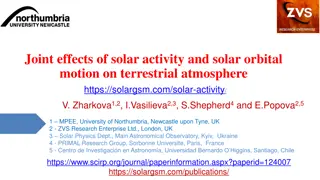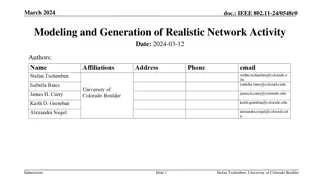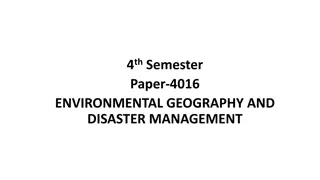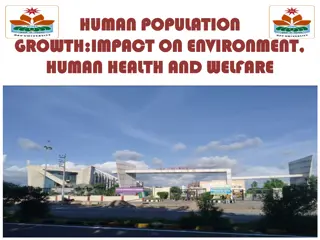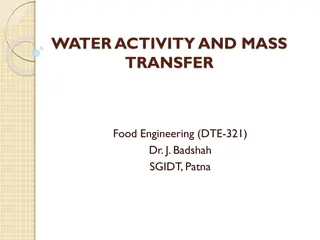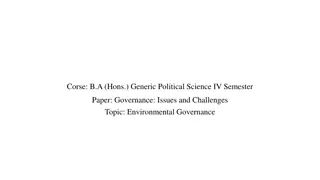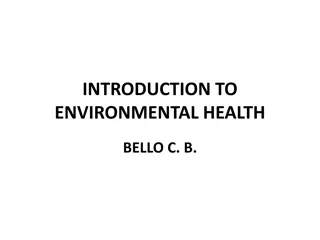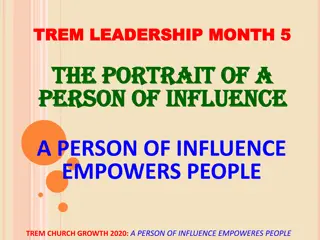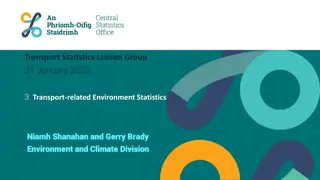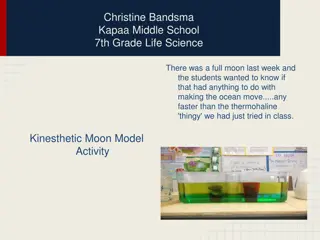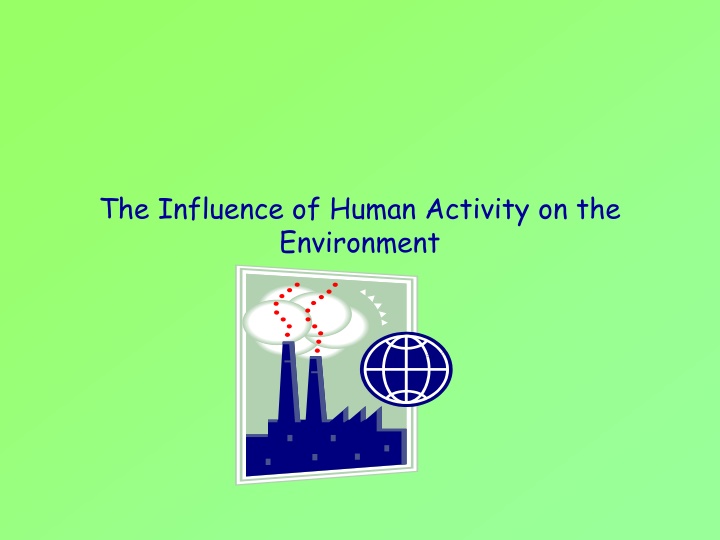
Impact of Human Activity on the Environment
The influence of human activity, including improvements in agriculture, health, and medicine, has led to a rise in population size, resulting in increased pollution and resource demand. Human activities such as burning fossil fuels have caused environmental issues like climate change, acid rain, deforestation, and habitat destruction. Intensive farming practices also contribute to environmental degradation through the use of fertilizers and pesticides.
Download Presentation

Please find below an Image/Link to download the presentation.
The content on the website is provided AS IS for your information and personal use only. It may not be sold, licensed, or shared on other websites without obtaining consent from the author. If you encounter any issues during the download, it is possible that the publisher has removed the file from their server.
You are allowed to download the files provided on this website for personal or commercial use, subject to the condition that they are used lawfully. All files are the property of their respective owners.
The content on the website is provided AS IS for your information and personal use only. It may not be sold, licensed, or shared on other websites without obtaining consent from the author.
E N D
Presentation Transcript
The Influence of Human Activity on the Environment
Improvements in agriculture health and medicine have produced a dramatic rise in the human population This increase in population size leads to an increase in pollution and higher demand for the world s resources
Humans are using up the earths resources, including fossil fuels.
Burning fossil fuels in cars and power stations produces carbon dioxide, sulphur dioxide and other greenhouse gases carbon dioxide traps heat in the atmosphere and causes the temperature of the earth to rise. This leads to disruption of the weather patterns eg drought, floods Some weeds may thrive on the extra carbon dioxide while other plants are killed
Sulphur dioxide will dissolve in rain producing Acid Rain Acid rain damages trees and pollutes rivers and lakes.
Acid rain causes erosion of buildings and statues particularly if they are made of limestone
Deforestation In may countries people are chopping down forests to provide timber or space for agriculture for the growing population
This causes several problems 1. Burning the timber increases the level of carbon dioxide in the air 2. Less trees means less carbon dioxide absorbed for photosynthesis 3. Soil is eroded as it is exposed to the wind and rain 4. Less water is transpired into the atmosphere 5. Many animal and plant habitats are destroyed causing extinction of species
Intensive Farming Farming has become more intensive to provide a higher % yield from land Many people regard intensive farming of animals to be cruel In order to produce more food from the land farmers have to use more fertilisers and pesticides
Problems with Fertilisers Fertilisers enable farmers to grow more food as they are replacing the nutrients removed from the soil by plants However, if too much fertiliser is added and it then rains, the fertiliser finds its way into rivers and lakes This causes the water plants to grow and as there is competition for light, some will die
Bacteria decay the dead plants and in so doing use up oxygen from the water This means the fish suffocate and die This process is called Eutrophication Raw sewage pumped into rivers has the same effect
Pesticides Pesticides kill insects that will damage crops They also kill harmless insects or can get washed into rivers and pollute the water They may even end up in the food chain
In the 1960s, DDT in the food chain threatened bird populations. Many birds of prey came close to extinction
Organic Farming? This produces less food and is more expensive but it does not produce the pollution problems of intensive farming
Use farmyard manure as a fertiliser and set aside land for growth of wild plants
Biological Control of Pests This means using natural predators to eat pests instead of pesticides It does not have harmful effects
Develop alternative energy sources Conserve our rapidly diminishing fossil fuel reserves by using solar power or wind power
Benefits of conserving endangered species Ecotourism Agricultural benefits Species indicators Maintaining diversity in gene pool
This powerpoint was kindly donated to www.worldofteaching.com http://www.worldofteaching.com is home to over a thousand powerpoints submitted by teachers. This is a completely free site and requires no registration. Please visit and I hope it will help in your teaching.


